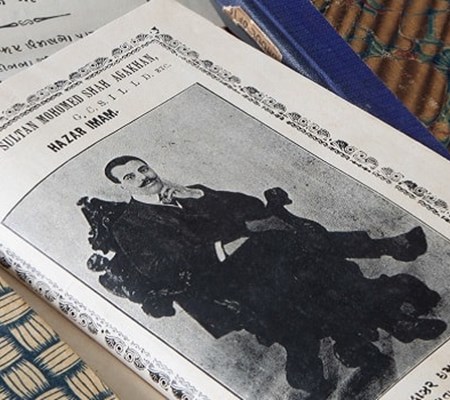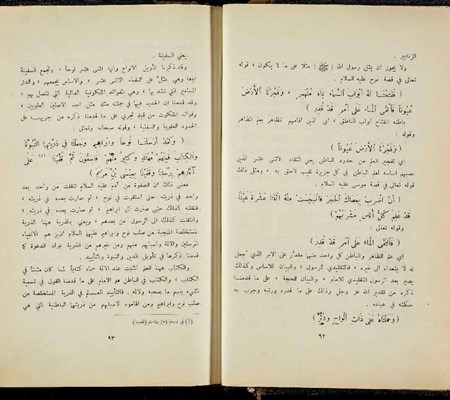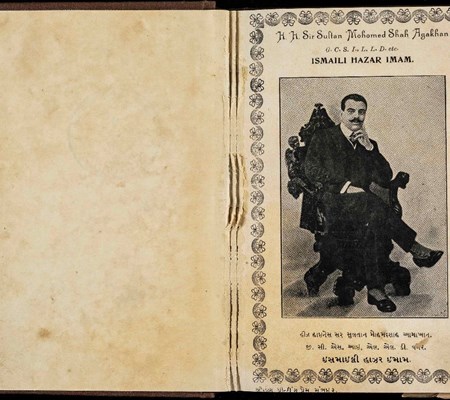World Book Day: Ismaili Printed Materials Added to Aga Khan Library's Growing Digital Collection

Pedro Sánchez Rodriguez is a Librarian at the Aga Khan Library who oversees the Aga Khan Library Digital Collections (AKLDC) project, together with Shah Hussain, Librarian. Here, for World Book Day, they discuss the recently launched Ismaili Printed Materials Collection and the amazing response it has already received.
We initiated the AKLDC project in 2019. Its aim is to create high-quality digital copies of a selection of books in the Aga Khan Library rare book collection and publish them on an open-access platform. By doing so, we are seeking to protect historical materials as well as aiming to promote and facilitate research by providing access to a selection of important books that are not easily accessible due to their physical condition or their scarcity.

Asās al-taʼwīl (1960) by Abū Ḥanīfah
The effect of the Covid-19 pandemic has proved that our digital approach is necessary now more than ever, and researchers and students in various academic fields and regions have been enthusiastic about accessing our resources online without restrictions. When travelling and research funds are quite limited, a platform like AKDLC becomes essential to continue research.
In particular, and perhaps not surprisingly, the Ismaili Printed Materials Collection—which we inaugurated with an initial 62 books in early 2021—has received an amazing reception. The Ismaili Printed Materials represent the core of the Aga Khan Library’s collections and include outstanding and often unique resources for the scholarly study of the history, thought and traditions of the Ismailis. With the digitisation of part of this valuable collection, we aim to provide students, researchers and the wider Ismaili communities with easy access to some of these key resources and a glimpse into our vast collections.
The materials already digitised, and those forming the next batch we will be uploading, are print books from the 19th and early 20th century that cover some of the key themes for the study of the Ismailis and their traditions. They include monographs, critical editions of manuscripts, Safarnamah (or books of travels), religious sermons and devotional literature. These books, published in many regions, languages and scripts, illustrate the expansion and diversity of Ismaili communities.
Some of the highlights of the collection include critical editions and translations of the works of the famous Fatimid Jurist, Qadi al-Nu’man (d. 974); the renowned Persian poet and traveller, Nasir-i Khusraw (d. 1088); and the medieval philosopher and astronomer, Nasir al-Din Tusi (d. 1274), to name a few. Also included in the collection are extensive holdings of religious lyrical literature known as ginans attributed to Ismaili pirs in the Indian sub-continent.
The collection also contains the research of the famous Russian scholar and pioneer of modern Ismaili studies, Vladimir Ivanow (1886–1970), and many works authored by other European Orientalists.
The next phase of the AKLDC will include digitised materials from our Ottoman collection and a further selection of Ismaili printed materials, which will be available in early 2022. This will include several of our early 20th Century editions of the works of the famous Ismaili poet Nasir-i Khusraw, and a rare 1921 edition of Gulzār-i Shams-i Tabrīz, among many other essential texts.
Search the Ismaili Printed Materials Collection
Explore the Aga Khan Library Digital Collections

100 Ginānanī chopaḍī (early 20th Century) in Gujarati, showing a portrait of Sir Sultan Mahomed Shah, Aga Khan III.
